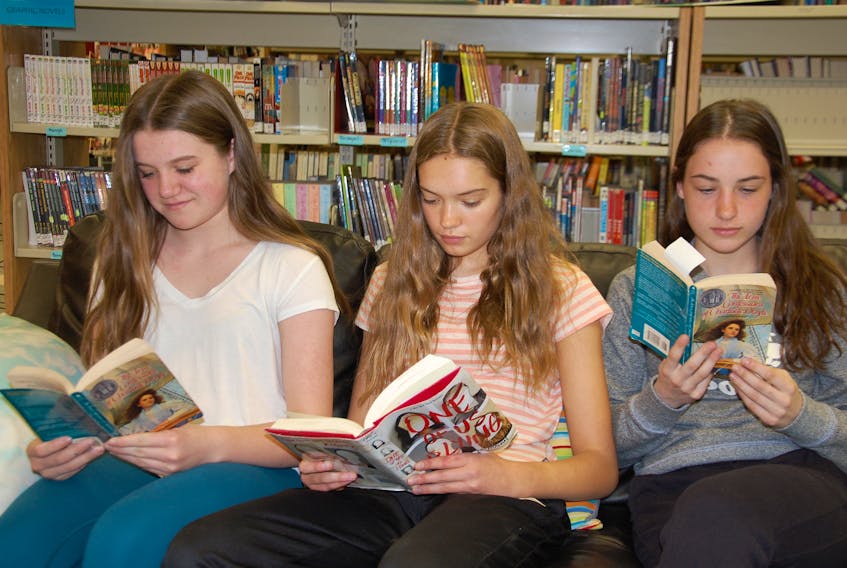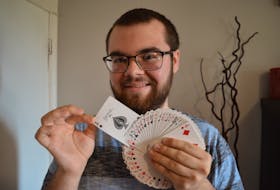Island students continue to make a dramatic climb towards the top of the class, according to a new national assessment.
The Pan-Canadian Assessment Program indicates performance of P.E.I.’s Grade 8 students in reading, math and science has moved from among the lowest to among the highest in Canada.
The report, released Monday by the Council of Ministers of Education, presents a detailed portrait of the skills of Canadian youth in Grade 8 in reading, mathematics and science.
Roughly 27,000 Grade 8 students from close to 1,500 schools across all 10 provinces were tested in spring 2016 as part of the Pan-Canadian Assessment Program (PCAP). Reading was the primary focus of the assessment this time.
And P.E.I. performed quite well in this critical skill area.

Ninety-one per cent of students in P.E.I. achieved level 2 or higher in reading, which is higher than the Canadian average. Level 2 is the PCAP baseline or expected level for reading proficiency in Grade 8.
At the higher end of the PCAP scale, 14 per cent of all Canadian students performed at Level 3. At the provincial level, the proportion of students achieving at the highest level was similar to the Canadian average in P.E.I. as well as four other provinces.
A significantly higher proportion of Island girls achieved at or above the expected level of performance in reading compared to the Canadian average for girls, while the percentage of boys at or above Level 2 was statistically the same as the Canadian average for boys.
Within the province, a larger proportion of girls than boys achieved Level 2 or above.
Education and Early Learning Minister Jordan Brown says the strong results follow investment by his department in 14 different interventions aimed at pulling students, teachers and curriculum up to a higher level.
“If you don’t know where your weaknesses lie, it is difficult to improve,’’ he told The Guardian.
“Our teachers have moved the markers and brought Prince Edward Island from being one of the lowest to one of the highest achieving provinces.’’
Related: MLA questions P.E.I. student assessment program
Poll: Do P.E.I. students write too many learning assessment tests?
In mathematics, Grade 8 Island students attained a mean score similar to the Canadian mean. Mathematic scores in P.E.I. were significantly higher in 2016 compared to the 2010 baseline for PCAP math.

Scores in mathematics improved significantly for both girls and boys in the province between 2010 and 2016. These results are consistent with those for girls and boys in Canada as a whole in the same period.
In PCAP 2016, the mean score in overall science for students in Prince Edward Island was the same as the Canadian mean.
The science achievement of both girls and boys in P.E.I. was also statistically similar to the respective Canadian means for gender. Within the province, there was no gender gap in science achievement. This differs from the results at the Canadian level, where girls achieved higher scores than boys.
Students in Prince Edward Island achieved higher scores in science in PCAP 2016 than in 2013, which is the baseline year for science.
Science scores for both girls and boys in P.E.I. were also significantly higher in 2016 compared to 2013, which is consistent with the results at the Canadian level.
Brown notes maintaining and improving the performance of Island students in reading is key to their overall success,
“I think the literacy piece is huge in this (assessment) because if you don’t have that foundation, it is going to be tough to achieve well in the other domains,’’ he says.
“If you can’t read, you’re really going to have trouble doing everything else.’’
The Greater Charlottetown Area Chamber of Commerce is also encouraged by the PCAP results.
“Ensuring our students have the skills they need for the future success is an important determinant of current and future economic sustainability,’’ says chamber president Rory Francis.
“Chamber members know and continue to express that the quality of our education system and the economic well-being of our province are closely intertwined.’’
The chamber notes the importance of formal and publicly reported evaluations of Island student’s education outcomes. The assessments are a tool to determine if and how progress is being made.
The results, adds the chamber, should also be a determinant of where additional resources may be required in the education system.









